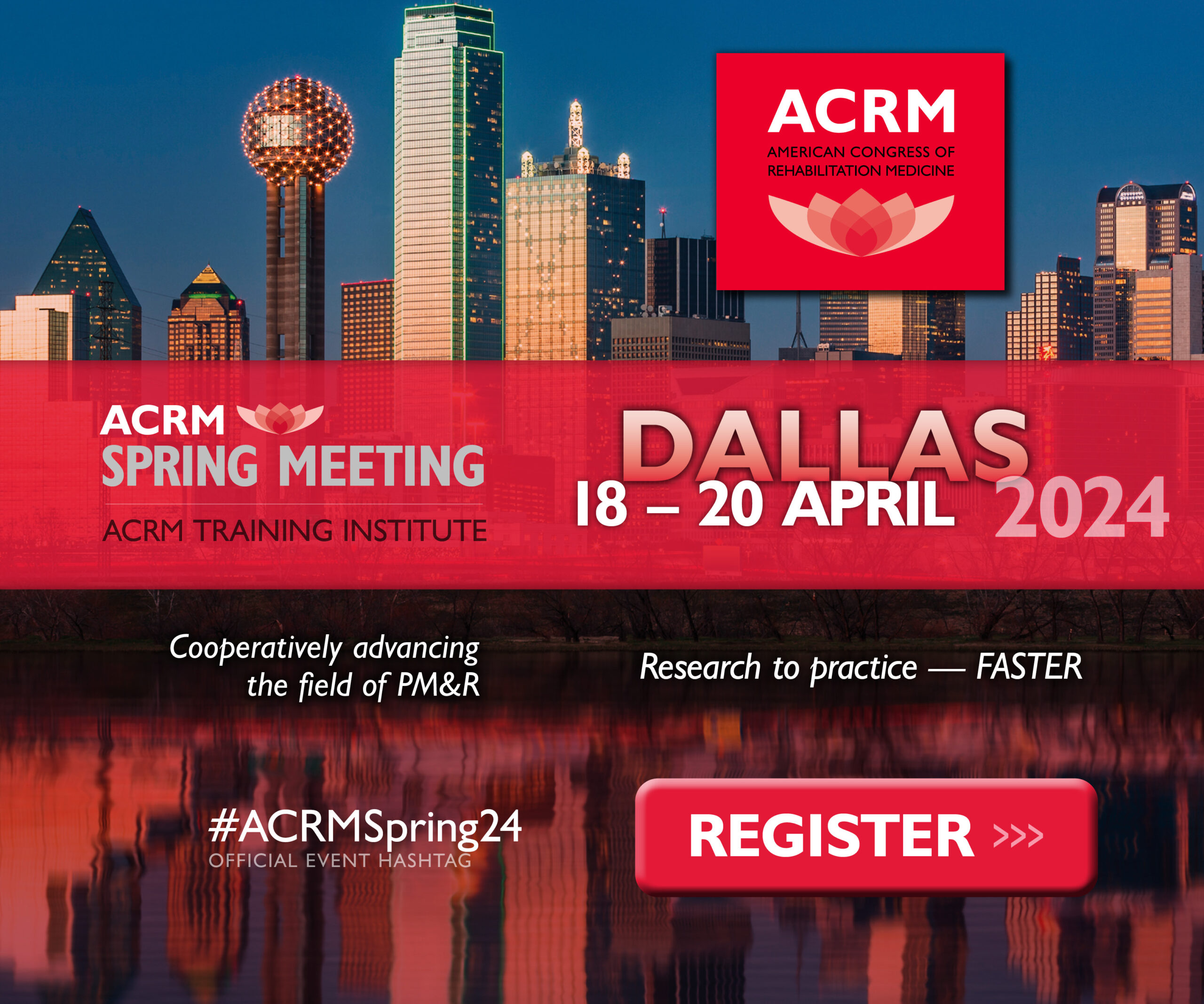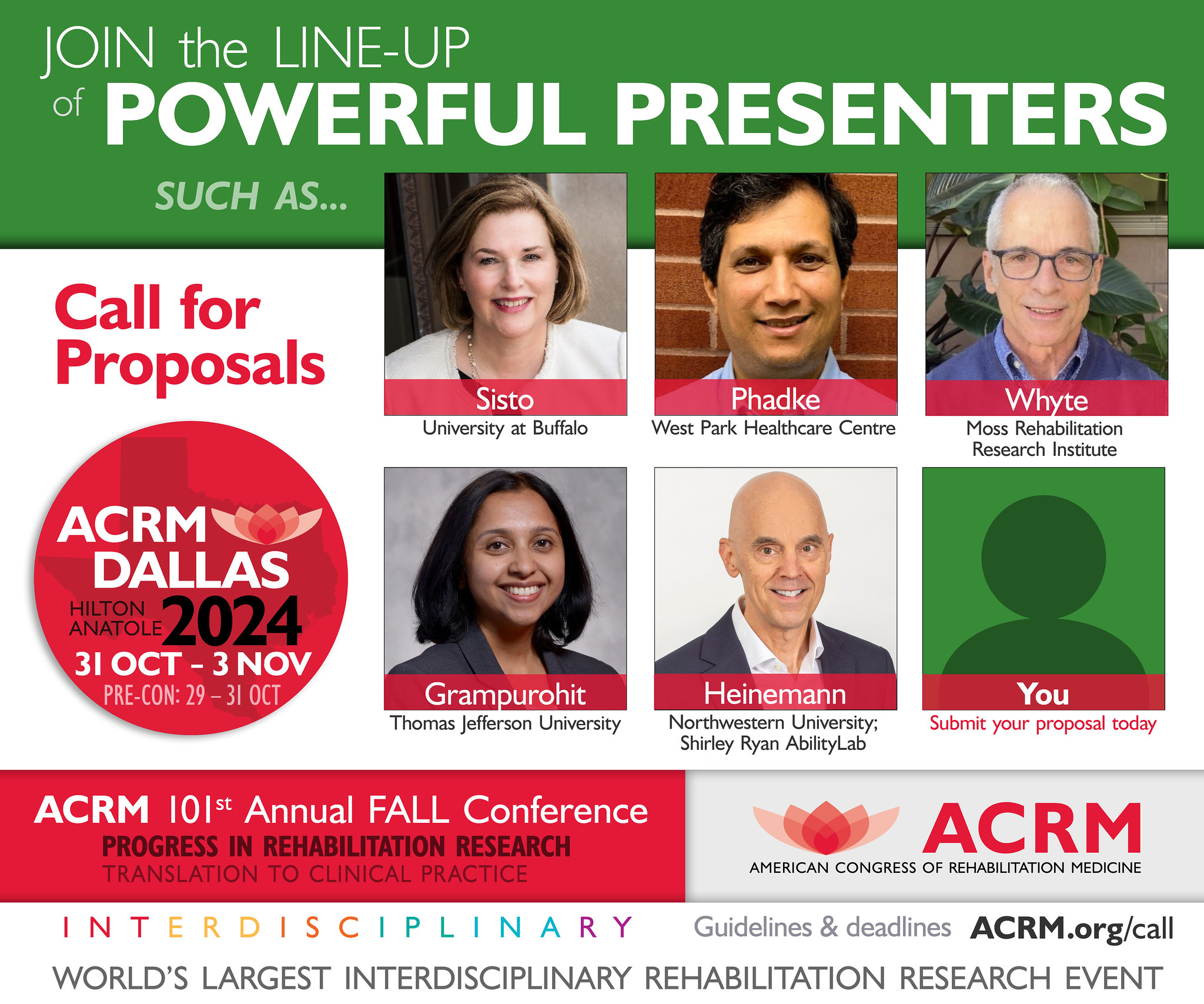TUE 1 NOV // 8:00 AM – 12:00 PM
Primary Content Focus: Measurement
Secondary Content Focus: Other (Research Methodology)
Attendees will learn how qualitative methods can enhance rehabilitation research and reasons why they should consider including these methods in study designs. We will discuss the kinds of research questions that qualitative methods can address and when they are appropriate to include in a study. The second half of the course will be a hands-on workshop in which attendees will be introduced to the process of coding and analyzing qualitative data – perhaps the least well understood element of qualitative research methods. The course is appropriate for all attendees who are interested in learning more about qualitative and mixed-methods research and application.
LEARNING OBJECTIVES
- Describe why and when to use qualitative methods in rehabilitation medicine
- Describe how to plan for inclusion of qualitative and mixed methods in rehabilitation related research
- Identify how rigor is assessed in qualitative and mixed methods studies
KEY WORDS
- qualitative research
- research design
- rehabilitation
- evidence-based practice
FACULTY
Karen Besterman-Dahan, PhD, RD
Qualitative Core Director (Tampa); Medical Anthropologist – Health Research Scientist, HSR&D Center of Innovation on Disability and Rehabilitation Research, James A. Haley VA Medical Center
Dr. Besterman-Dahan’s program of research includes health and culture, Veteran health, community reintegration, community agricultural initiatives, food and foodways and program evaluation using qualitative and mixed method designs. She has over 20 years of research experience with a broad background in medical anthropology and specific training and expertise in qualitative research design and methods, including interview and focus group methodology, ethnography and qualitative data analysis using computer-aided qualitative data analysis (CAQDA) software.
 Alison Cogan, MA, OTR/L
Alison Cogan, MA, OTR/L
Research Assistant, University of Southern California
Ms. Cogan is an occupational therapist and doctoral student at the University of Southern California Chan Division of Occupational Science and Occupational Therapy (USC Chan) in Los Angeles. She teaches a course entitled, “Qualitative Research for Evidenc- Based Practice” in the occupational therapy master’s program at USC Chan.
Theresa Crocker, PhD, MS, RD
Assistant Director of Community-Based Research, USF Health Byrd Alzheimer’s Institute
Dr. Crocker is a medical anthropologist with a background in nutrition and chronic disease prevention and the Assistant Director of Community-Based Research at USF Health Byrd Alzheimer’s Institute. In this role she applies her mixed methods research expertise to conduct formative analysis for program development and program evaluation on a range of Institute initiatives.
Gail Powell-Cope, PhD, ARNP, FAAN
Co-Director, HSR&D Center of Innovation, James A. Haley VA Hospital
Dr. Powell-Cope has over 30 years of experience in nursing and quality improvement in patient safety and 24 years of experience in research in health services, nursing, and survey and qualitative methods. She has taught classes on grounded theory in qualitative research courses and conducted numerous qualitative studies, as evidence by 20 peer reviewed publications as first author or co-author. Dr. Powell-Cope has a VA HSR&D-funded study currently funded that uses both qualitative and quantitative methods.
One full day of Instructional Courses: $199 // Three full days: $399
WORLD PASS (from $599) is the best value if you attend the CORE Conference and just one instructional course.
CLICK HERE for pricing detail.
CONFERENCE HOME PAGE >>>
ALL PRE-CONFERENCE COURSES >>>
*Although significant changes are not anticipated, all schedules, sessions, and presenters posted on this website are subject to change.










